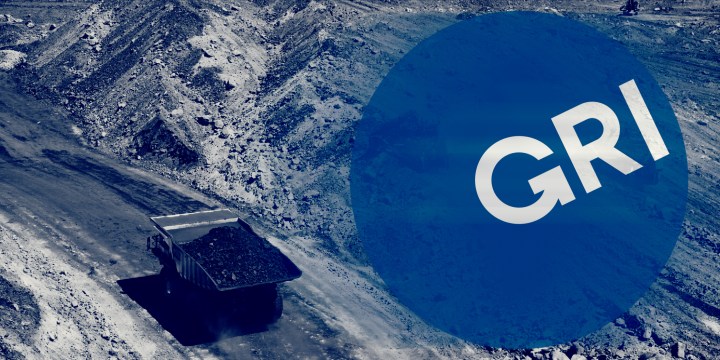GREENER BENCHMARKS
New global standards for mining sustainability unveiled

The Global Reporting Initiative on Thursday unveiled new sustainability standards for the mining industry which cover a range of issues from tailings management to operating in conflict zones.
The Amsterdam-based Global Reporting Initiative (GRI) is an independent organisation that provides “sustainability reporting standards” for businesses and other groups. As such, it plugs into the current corporate zeitgeist around ESGs, or environmental, social and governance concerns.
To wit, the GRI unveiled sustainability standards on Thursday for the global mining industry in Cape Town, where the Investing in African Mining Indaba took place last week.
“The fourth addition to GRI’s Sector Standard series, the Mining Standard was developed with a robust multi-stakeholder approach at its core and focuses on the significant impacts of the mining sector,” GRI said in a statement.
It covers 25 topics that are material to the mining sector and range “from emissions to waste, human rights to land and resource rights, climate change to biodiversity, anti-corruption to community engagement.”
The consolidated set of all of its standards including for mining is rather like the rugby rule book, running to more than 1,000 pages.
As an example, in the new Mining Standards section, “mine-site level reporting” is set as the standard, meaning companies have to drill down to account for the local impacts of their operations.
The GRI has street credibility, and so this is the kind of initiative that investors and other parties interested in the mining sector should pay heed to.
The International International Council on Mining and Metals (ICMM), which has 26 member companies worldwide that account for a third of global mining output, requires its members to comply with GRI standards in their reporting.
“Overall, there has been a lot of focus on all of the community topics and how economic benefits are being shared. Companies need a social licence to operate,” Noora Puro, senior manager for standards at GRI, told Daily Maverick in an interview on the sidelines of the launch.
This is an area the South African mining sector and public can relate to, given the social unrest — which is often ginned up, it must be said, by criminal elements — that often disrupts mining activities.
Green transition
“Also the whole world is looking at the mining sector because of its linkage to climate change and being the solution to many green technologies. We need those transition minerals to build our solar panels and wind farms,” she said.
That would also include the battery metals needed to the green transition such as cobalt and lithium.
The GRI Mining Standard also introduces three topics that relate directly to the industry: tailings management, artisanal mining and operating in conflict zones.
Tailings management refers to the management of potentially toxic and dangerous tailings dams that store mine waste.
This issue was thrown into sharp relief In the wake of the collapse of Vale’s iron ore tailings facility at Brumadinho, Brazil, on 25 January 2019 that killed 270 people. New standards for tailings management were unveiled in August 2020, but they are still being refined.
Read more in Daily Maverick: New global standard launched to address mine tailings dam disasters
Artisanal mining and conflict zones have also risen high on the radar screen. The two are often found together and between them leave a trail of misery in their wake.
“This is especially important when you look at transition minerals that are being mined in places like the DRC. It’s not just investors, it’s consumers. When they hear that there is potentially child labour involved in getting your minerals to your cellphone, that raises eyebrows,” Puro said.
It’s easy to be cynical about such initiatives and companies in the mining sector in Africa and elsewhere no doubt remain engaged in plunder, pillage and perfidy.
But the mining sector is also coming under increasing scrutiny and much of the focus on ESGs is driven by the need for the industry itself to clean up its supply chains while reducing its carbon emissions to meet regulatory requirements.
This is no bad thing and having a common set of standards allows investors, consumers and others with a stake in the sector to compare and contrast companies. Suited C-suite executives and sandalled activists can all raise a Bells to that kind of transparency and accountability. DM





















 Become an Insider
Become an Insider
Comments - Please login in order to comment.